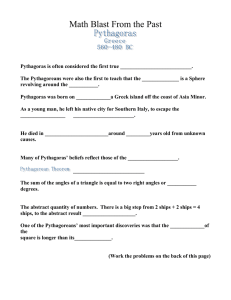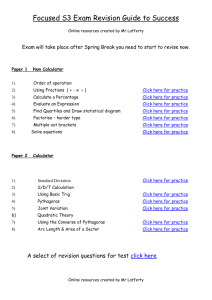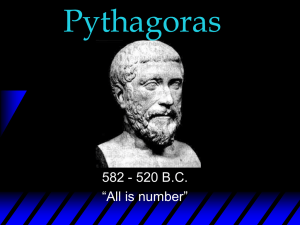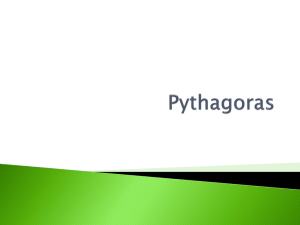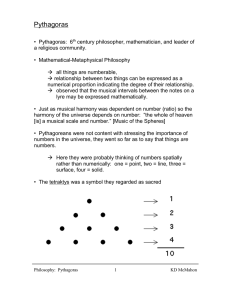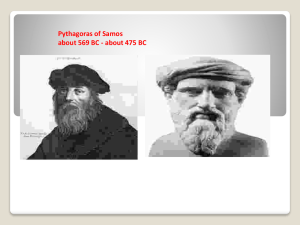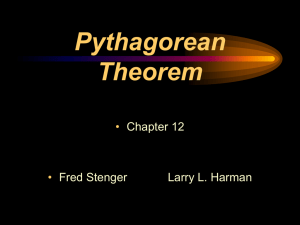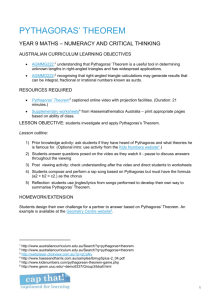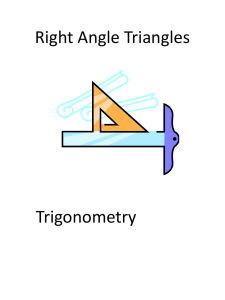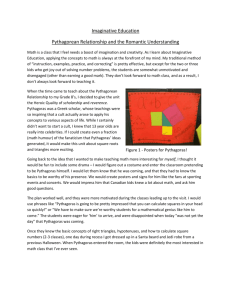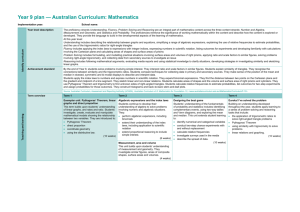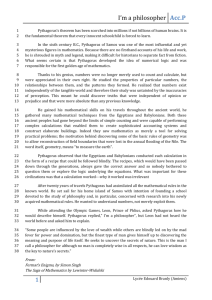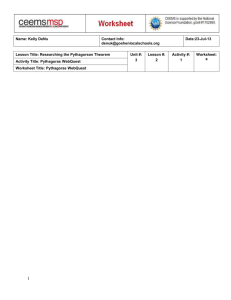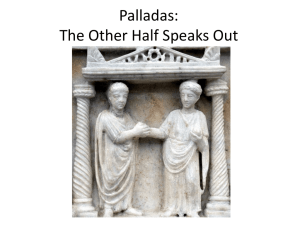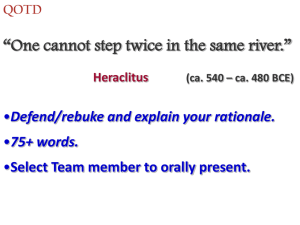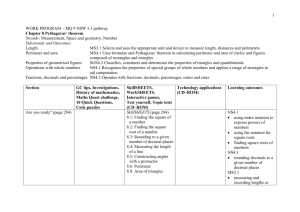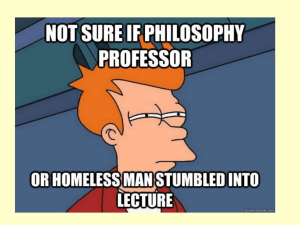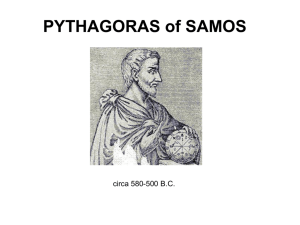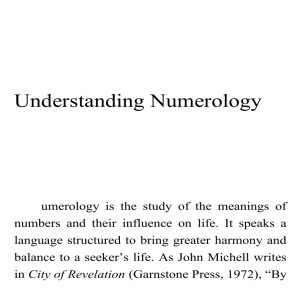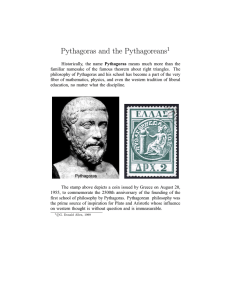Unit 7 End of Unit Activity
advertisement
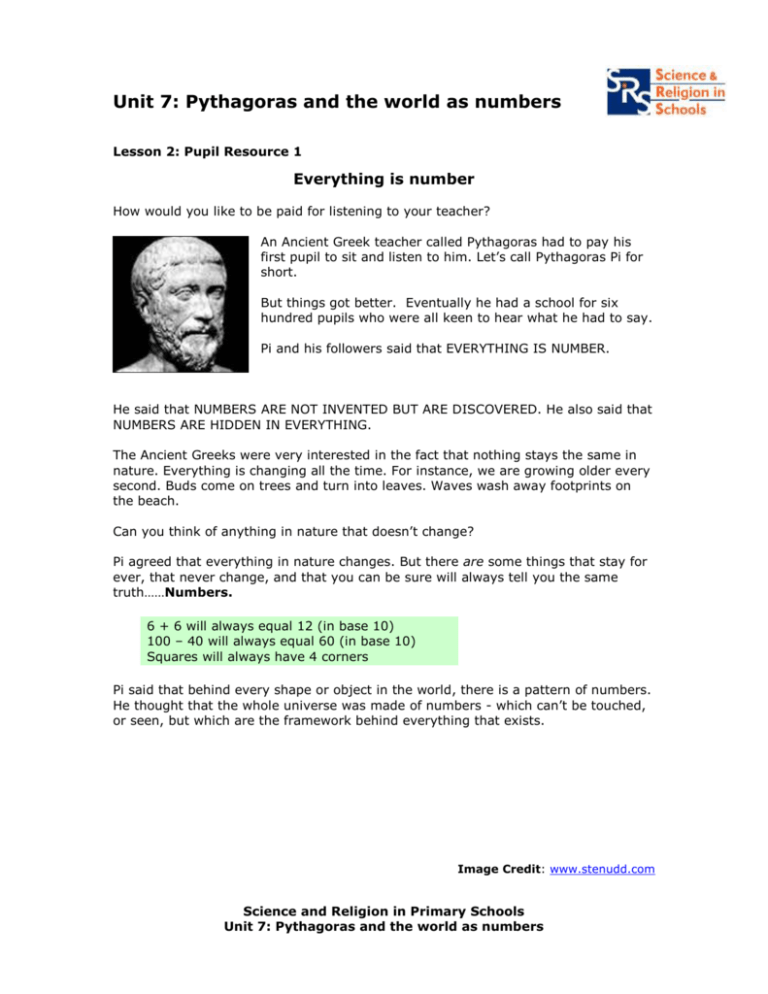
Unit 7: Pythagoras and the world as numbers Lesson 2: Pupil Resource 1 Everything is number How would you like to be paid for listening to your teacher? An Ancient Greek teacher called Pythagoras had to pay his first pupil to sit and listen to him. Let’s call Pythagoras Pi for short. But things got better. Eventually he had a school for six hundred pupils who were all keen to hear what he had to say. Pi and his followers said that EVERYTHING IS NUMBER. He said that NUMBERS ARE NOT INVENTED BUT ARE DISCOVERED. He also said that NUMBERS ARE HIDDEN IN EVERYTHING. The Ancient Greeks were very interested in the fact that nothing stays the same in nature. Everything is changing all the time. For instance, we are growing older every second. Buds come on trees and turn into leaves. Waves wash away footprints on the beach. Can you think of anything in nature that doesn’t change? Pi agreed that everything in nature changes. But there are some things that stay for ever, that never change, and that you can be sure will always tell you the same truth……Numbers. 6 + 6 will always equal 12 (in base 10) 100 – 40 will always equal 60 (in base 10) Squares will always have 4 corners Pi said that behind every shape or object in the world, there is a pattern of numbers. He thought that the whole universe was made of numbers - which can’t be touched, or seen, but which are the framework behind everything that exists. Image Credit: www.stenudd.com Science and Religion in Primary Schools Unit 7: Pythagoras and the world as numbers Unit 7: Pythagoras and the world as numbers Lesson 2: Pupil Resource 1 Imagine you are building a house. You want a good one, so before you order your materials, what do you do? Make a plan. Draw out the house. Write measurements for its height and length. Decide where the windows and doors will be. When everything is accurate, you build the house. It will look just like the house on the plan – but it will be real. It will be a fine house for a long time – but it will eventually start to look older. One day, perhaps in 100 years, bulldozers will come and clear it away. But the plan of the house can be used to make as many more of the same type of house as anyone wants. To Pi, numbers are a bit like plans. All of nature is built by following them. Pi wanted to find out what the plans were behind the changing natural world. He thought that he was finding out the secrets of the universe. They are secrets because they are there all the time, but hidden from view. It was up to great people like himself to discover them, he thought. He felt that numbers were pure, perfect and eternal. To him, numbers were SACRED. Pi loved finding out about the properties of shapes. We call this GEOMETRY. He is famous for discovering the properties of right-angled triangles. We call what he found out ‘Pythagoras’s Theorem’ and you are bound to come across this in your maths lessons. He was interested in how numbers connect to each other, making patterns and sequences. He was especially interested in the counting numbers 1, 2, 3, 4… which we call whole numbers, and fractions such as ½ and ¼ and ⅝ which are parts (or ratios) of whole numbers. We call whole numbers and fractions RATIONAL NUMBERS from the word ‘ratio’. Pi was always on the lookout for rational numbers that seemed to be special. One thing he never thought of though – to use zero as a counting number. Science and Religion in Primary Schools Unit 7: Pythagoras and the world as numbers
